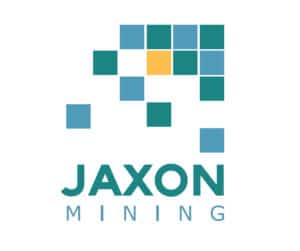The Bank of England hiked interest rates to a 27-year high on Thursday, despite warning of a long recession as it rushed to quell a rise in inflation from now over 13%. Amid energy prices fueled by Russia’s invasion of Ukraine, the BoE’s monetary policy committee voted 8-1 to raise interest rates by half a percentage point from 1.25% to 1.75%, the highest level since late 2008. The 50 basis point rise was expected by most economists in a Reuters poll as central banks around the world scramble to rein in rising prices. Governor Andrew Bailey said all options are on the table for the next BoE meeting in September and beyond. “Returning inflation to the 2% target remains our top priority”.
The BoE warned that the UK was headed for a recession, with output down 2.1%, similar to that seen in the 1990s but much less than the impact of COVID-19 and the recession caused by the crisis. financial crisis. The economy would start contracting in the last quarter of 2022 and contract throughout 2023, making it the longest recession since the global financial crisis. CPI inflation is expected to peak at 13.3% as the slowdown begins. in October –
, the highest since 1980 – mainly due to the rise in energy prices after Russia’s invasion of Ukraine.
That would leave households facing two consecutive years of declines in their disposable incomes, the biggest squeeze since these records began in 1964.
Sterling fell against the US dollar while futures were pricing in another 25-basis point rate hike to 2% for the next BoE September meeting. “Today’s decision validates the vision of a central bank determined to contain inflation amid ongoing supply-side challenges, including a very tight labor market and skyrocketing energy bills,” said Hussain Mehdi, macroeconomics, and investment strategist at HSBC Asset Management.
is already more than four times the BoE’s 2% target, triggering industrial action and putting pressure on whoever succeeds Boris Johnson as the next UK Prime Minister to provide more support. The BoE had previously expected inflation to peak above 11% and the UK economy to barely grow until 2025 at the earliest.
In its new forecasts, the BoE expected inflation to fall to 2% in two years as the economic slump took its toll on demand. Bailey said the risks to the BoE’s outlook are “extraordinarily large”. has raised interest rates six times since December, but Thursday’s move was the biggest since 1995. Pressure on Bailey and his colleagues to take bigger steps mounted after recent rate hikes by the Federal Reserve, the European Central Bank and others central banks. These moves weakened the value of the pound, which can increase inflation. The BoE reiterated that it stands ready to act vigorously if necessary to contain more persistent inflationary pressures.
But it stressed that there were “extremely large” uncertainties about the economy – which could make the slowdown more or less severe than its core forecasts – and it would judge what its next moves should be as events unfold.
“Policy is not on a pre-set path,” the BoE said. “The scale, pace and timing of any further changes in Bank Rate will reflect the Committee’s assessment of the economic outlook and inflationary pressures.”
On top of that, the BoE’s anti-inflationary record has been questioned by Liz Truss, the lead candidate for the post of next UK Prime Minister. She wants to give “a clear direction” to monetary policy and review the mandate of the BoE. The BoE said it expects to start selling its huge stash of government bonds shortly after its next meeting in mid-September, with active sales of around £10 billion a quarter. Gilt holdings peaked at £875,in December and have since fallen to £844bn after the BoE halted reinvestment of proceeds from bonds maturing in February.








